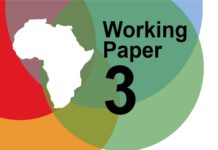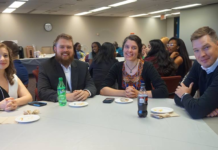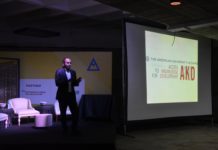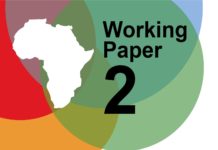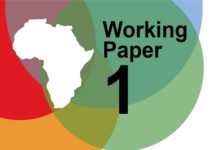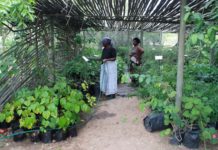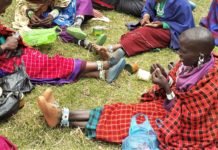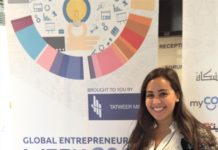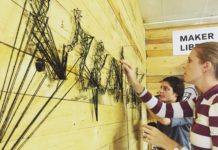Open Innovation in Development: Integrating Theory and Practice Across Open Science, Open Education, and...
Authored by: Jeremy de Beer
Abstract: This article integrates the concepts of open innovation and open development. It extends the theory of open development beyond...
Open AIR Students Present at Carleton’s Institute of African Studies
Back in October 2016, three of our Open AIR Research Fellows had the unique and rewarding opportunity to participate in the Second Annual Institute of African Studies Undergraduate Research Conference at Carleton University’s Institute of African Studies. Undergraduate researchers from across the globe presented their research findings on a wide breadth of topics – from fiction describing Nigerian culture, to professional development for youth in South Africa, to political structures that influenced the welfare state in Tanzania and Kenya.
Open AIR North Africa Distinguished Speaker Series: Ibrahim Al-Safadi on Makerspaces and Employment Opportunities
On 10 December 2016, as part of the RiseUp Summit in Cairo, Open AIR’s North Africa hub hosted their first Distinguished Speaker event with Ibrahim Al-Safadi, the CEO of Luminous Education. The Access to Knowledge for Development Center (A2K4D) invited Al-Safadi to speak about the role of “makerspaces” to tackle unemployment and to share his experiences in how to create a makerspace that ensures that the individuals involved end up with jobs.
ICT strategy development: from design to implementation case of Egypt
ICT strategy development from start to finish, from design to implementation should cater to the different needs of the community whether it is societal, economic, business and political with an aim to realize universal access to optimize the impact in terms of scalability and sustainability.
A Framework for Assessing Technology Hubs in Africa
Authored by: Jeremy de Beer, Paula Millar, Jacquelene Mwangi, Victor Nzomo, and Isaac Rutenberg
Abstract: This article fills a gap in the research on technology hubs...
Evidence-based Intellectual Property Policymaking
Authored by: Jeremy de Beer
Abstract: Governments have long been interested in making intellectual property (IP) policy based on sound evidence. There is a large...
Recognizing Informal Sector Innovation: Implications for Traditional Knowledge Development in Africa
In 2012, a civil society group called the Alliance for Food Sovereignty in Africa (AFSA), raised concerns about a draft Africa Regional Intellectual Property Organization (ARIPO) plant variety protection protocol. AFSA was concerned,
Gender, IP, and Innovation: Open AIR’s Future Research
The Open AIR network seeks to bring, among other things, a gendered perspective to our research. We are exploring the nexus between feminist literature, intellectual property, information technology, and innovation; connecting these approaches into the network’s future priorities.
El Houssamy Presents at Egypt Entrepreneurship Summit
The Summit was part of a series of events that took place in Egypt in conjunction with the Global Entrepreneurship Week. A2K4D’s Senior Research Officer, Nagham El Houssamy, participated in the summit, speaking on the Data-Driven Innovation Panel on Friday, November 18.
Professor Carys Craig Infuses the Open Access Movement with Feminism at the University of...
Is intellectual property (IP) gender neutral? No. Neither is the dominant discourse on innovation. Recognizing this bias is the first step toward remedying it.

